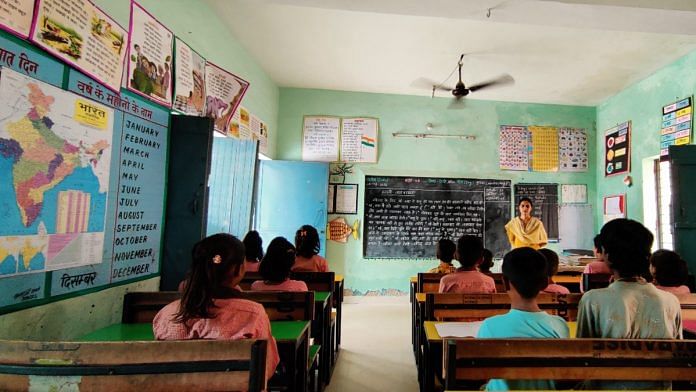
Thank you dear subscribers, we are overwhelmed with your response.
Your Turn is a unique section from ThePrint featuring points of view from its subscribers. If you are a subscriber, have a point of view, please send it to us. If not, do subscribe here: https://theprint.in/subscribe/
There is a daily programme on one of the business channels on television, where a very experienced investor interviews, each day, a different successful investor, who “reveals” his success stories -and failures- in the market before becoming a wealthy investor. One of the questions asked to the interviewee is to name his favourite book related to investing. There was one very successful investor interviewed, a self-proclaimed school dropout, who said that he has never read any book any time in his whole life. Yet he successfully founded an investment company managing assets worth millions. That is education by any standard. On the contrary, about a decade plus ago, we were interviewing fresh engineers for our manufacturing unit making electrostatic equipment. We were stunned to see that about seventy five percent of the candidates, electrical engineering graduates, were unable to define static electricity; on the contrary we have any number of examples of school dropouts who made it big in various fields.
Traditionally, the basic meaning of literacy has been the ability to read and write. The generally perceived and widely accepted definition of education often refers to formal education, which takes place under the guidance of tutors in a structured formal ecosystem. The formal structures in education are arranged in a hierarchical manner such as primary school, secondary school, college, and university. Education is understood as the acquisition of knowledge through a process of receiving or giving systematic instruction.
While literacy is a key factor that helps to measure the education level in a country, these two terms are not interchangeable. The fundamental difference between education and literacy, as perceived, could be that literacy basically refers to the ability to read and write whereas education refers to the acquisition of knowledge and its useful deployment even as the UNESCO defines literacy as the ability to identify, understand, interpret, create, communicate and compute, using printed and written materials associated with varying contexts. Ironically, as in the case of the two foregoing illustrations of the investor and fresh engineers, there is a flaw in defining education rendering mere graduation a suspect in gaining knowledge and using it fruitfully. We can then redefine literacy as an enabler to acquire skills and learning, while education is about applying these skills for the benefit of society. These days students are just getting literate but not educated. In a nutshell, it is important to gain Knowledge than to be just literate, to be useful to self and society.
It is mentioned in our ancient literatures, that the people were recognized by their respective occupation, warrior, trader and those rendering assorted services. Those who learned the Vedas were known as Brahmins. Generally, the vocations were passed on from father to son, who learnt
the various crafts mostly under the tutelage and guidance of the parent. Somewhere along the way, the system degenerated into the caste system we know today. Be that it may, the point here is that crafts and skills were learned within the family rather than from elsewhere. Professions were handed over within the family, before the idea of collective education germinated, maybe, in the form of gurukuls etc. A literate may or may not have degrees but she is considered as educated when her skills are enhanced and she is able to employ her learning and skills for the good of the society
It is evident that any person who can read and write cannot be called an educated person. Education is a much broader concept than literacy. All around the world, especially In India, it is seen that there are many who
are literate but, least who are educated. The problem in India is not about unemployment. It is one of unemployability. Even after attending school and college for fifteen years most are left with inadequate skills and remain uneducated and unskilled. This can be seen in some of the Indian states where the literacy rate is near one hundred per cent and yet it ranks well below in economic development and employment. This problem is visible in most developed countries too, where higher education is relatively unaffordable to most of the population.
Tailpiece
Education is about knowing your skills, abilities and learning, and then using them in the right place at the right time, to produce something useful. Educational institutions can make all the students literate but cannot make all of them educated. Individual contribution to self-education is paramount. Education changes a person as a whole. Educated people understand their responsibilities towards the society and country. As a corollary, university degrees etc. are not essential for gathering knowledge. It is time we recognise a person’s skills and contribution to building a society and not be enamoured only by the appended degrees trailing her name.
These pieces are being published as they have been received – they have not been edited/fact-checked by ThePrint.

COMMENTS